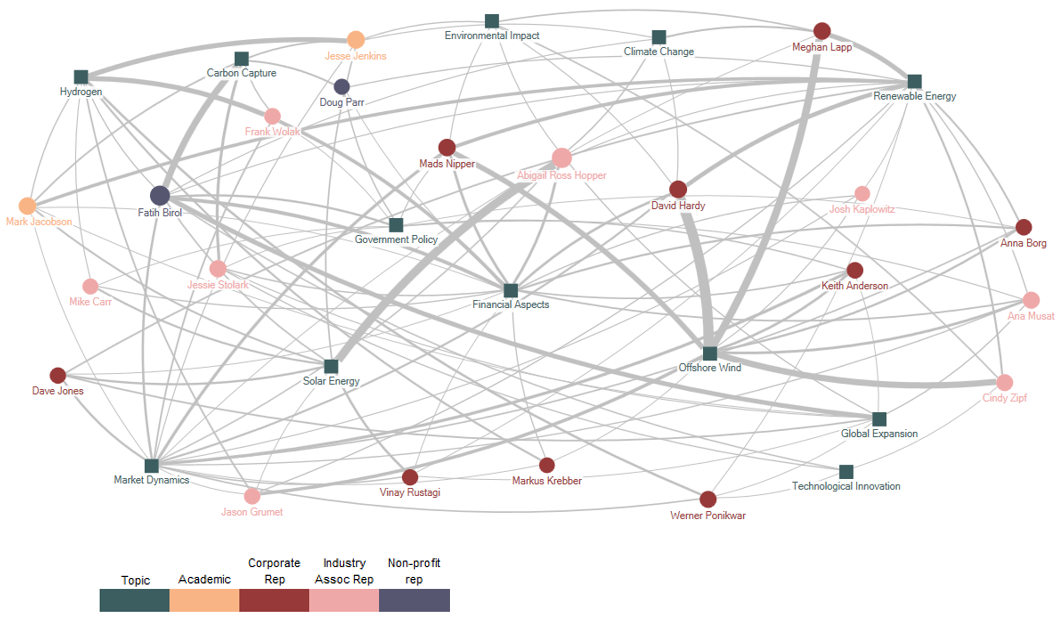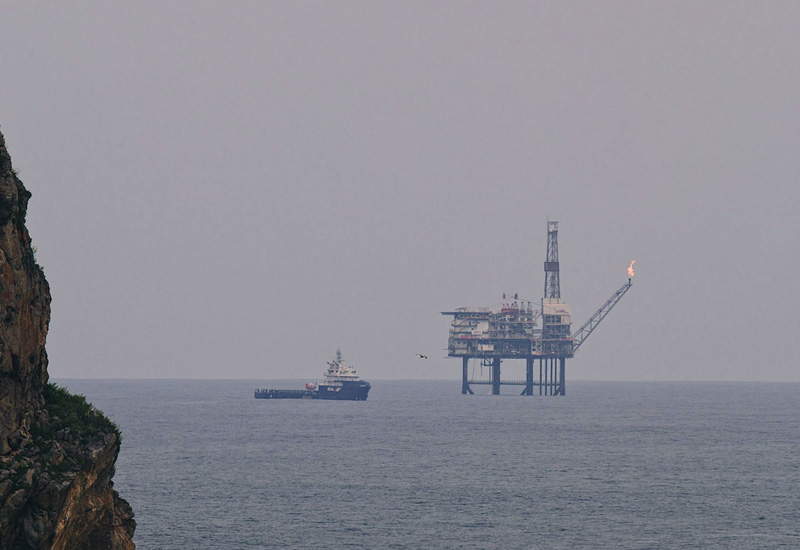Reading time: 3 minutes
Energy companies can transcend their ineffective green transition PR efforts by utilising advanced stakeholder mapping to formulate tailored comms strategies.
The issue: Our analysis of 5,675 English-language articles around the green transition published in the past 12 months revealed that energy companies often channel their public relations resources into deflecting criticism and overstating their engagement in green initiatives, a strategy that has led to heightened scepticism and accusations of greenwashing.
The fix: Rather than relying solely on the blanket promotion of their green solutions, oil giants can develop and implement tailored messaging strategies that directly address the concerns of key stakeholders.
Let’s give an example: Our stakeholder mapping of the media debate on green transition, as detailed below, reveals the most influential voices spanning several sectors. This includes opinion leaders from academia, industry associations, think tanks, nonprofit organizations, and the corporate sphere, alongside the topics they frequently address.

Our analysis identified a couple of effective messaging approaches that tap into the concerns of these stakeholders:
1. Emphasise your expertise in energy production and distribution.
- Who leads this conversation: Experts like Jason Grumet, chief executive of the American Clean Power Association, spotlighted the need for specialised capabilities to decarbonise hard-to-abate sectors, while others like Ana Musat of RenewableUK conveyed offshore wind’s complex scaling challenges.
- Why it matters: Oil companies have extensive experience in energy production and distribution which they still haven’t used to gain a larger share in the green transition debate.
- What companies should focus on: Energy players should emphasise their experience delivering large-scale complex energy projects, as well as their specialised carbon capture capabilities to decarbonise hard-to-abate sectors like steel and cement, which use carbon as an integral part of their processes and where renewable energy is still not an option.
2. Lead with the economic case instead of the green case.
- Who leads this conversation: Influential voices like Abigail Ross Hopper, CEO of the Solar Energy Industries Association, and Fatih Birol, Executive director of the International Energy Agency, widely discuss the economic aspects of renewable energy, sparking discussions about its affordability, security and reliability.
- Why it matters: A business case for the green transition would resonate more effectively for oil firms, as they cannot entirely rely on sustainability arguments or completely reframe themselves as “good guys” after years of environmentally damaging practices; they tend to lose moral battles for public opinion rather quickly.
- What companies should focus on: Energy players should highlight the economic advantages of green energy by emphasising how renewable sources like solar and wind contribute to job growth, enhance energy security, and offer long-term cost savings.
3. Tone down green claims.
- Who leads this conversation: Voices like Doug Parr, Policy Director at Greenpeace UK, and Professor Mark Jacobson of Stanford University demonstrate the risks of overemphasising specific solutions like carbon capture or biofuels without acknowledging their limitations.
- Why it matters: Toning down green claims is especially pertinent since a recent viral analysis from climate think-tank InfluenceMap found that the amount of climate-positive messaging used by five major oil and gas companies is inconsistent with their spending on low-carbon activities.
- What companies should focus on: Oil companies should not focus on just pushing their green solutions to the media but show that they’re undergoing a complex process of transforming themselves.
How Commetric can help:
- Set the right baseline: Our mapping studies quickly identify key players in the green transition debate, providing energy firms with a comprehensive view of the landscape. This enables you to tailor communications that address specific stakeholder concerns, cutting through the skepticism associated with greenwashing.
- Strategic insight for tactical gains: Beyond just identifying stakeholders, our approach pinpoints the exact issues, media outlets, and messaging that resonate. This insight allows energy companies to craft messages that emphasise their unique strengths, such as expertise in energy production and the economic benefits of green energy, while avoiding the pitfalls of overstated green claims.
- Cost-efficient strategy development: With the actionable findings from our mapping studies, you can make informed decisions on your strategic communication planning. This not only helps in effectively positioning against competitors but also in aligning with endorsers and understanding critics, ensuring your green transition messaging is both credible and compelling.

